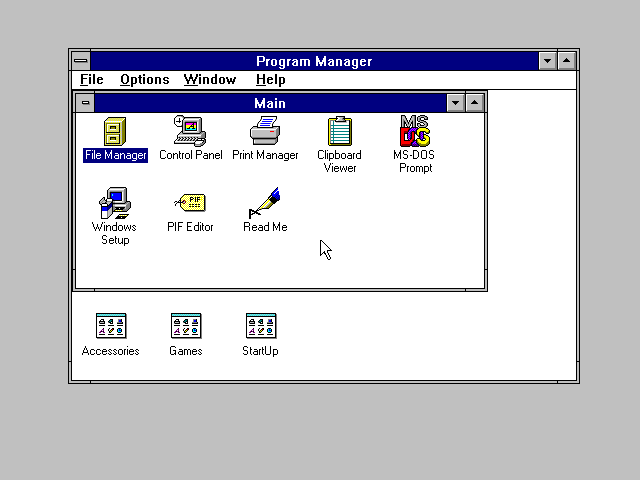The Ty Warner Penthouse Suite at the Four Seasons Hotel in NYC costs a mere $30,000/night. Who stays in their room while in NYC? I think I'd rather get 30 $1000 rooms and have a party on an entire floor.

The Ty Warner Penthouse Suite at the Four Seasons Hotel in NYC costs a mere $30,000/night. Who stays in their room while in NYC? I think I'd rather get 30 $1000 rooms and have a party on an entire floor.

In the past I have been anything but an apoligist for the tech world's advancements. I crave some of the visions of the future that I grew up with in sci-fi films and televisions. From a teleporter to a self-drive aircar. From a replicator or holodeck to an omnipresent mainframe that serves the needs of humanity... of course somehow these scenarios inevitably turn out bad.
The backbone for all such technology demands an immense mainframe that contains, if not the total, at least a large chunk of academic, social and personal information to dole out upon request. And while I know that, in most dystopian film plots, the archetypal consequence for individuals giving up their knowledge often ends badly, there is a lingering attraction to a tool that at command, whim and request can produce information and content that is uniquely customized to a user within a specific environment.
The first step to such a system has its nascent development in cloud computing, and while part of me is ready to release my kite into the cummulus, another part of me is remembering Twitter's Fail Whale and 404 errors of days gone by.
There is inherent risk that's greater than someone hacking Amazon to steal credit card information or a government website to lift social security numbers. Cloud computing demands that beyond the day to day information necessary to run our lives, we also commit our memory - i.e. writing, pictures, music and emails. And while many of us have copies of pictures in Flickr and stream music from last.fm, are we ready to commit the sole copies of such things to the cloud?
Being a victim of credit card fraud can range from annoying to devastating, but imagine a future where a system crash wipes out the only existing images of deceased loved ones or a child's first birthday. When do we reach that level of trust, not with certain things, but with EVERYTHING? For the skynet to work its magic, and be all it can be, it needs such information. Google, and other Web 2.0 in-browser software, would have us move all of our documents and spreadsheets into the cloud. Through blogs, many people have given up their creativity to the cloud... after all, how many of us keep backups of everything we post? Flickr has, what I'm sure, are the sole copies of at least some visual records of people and places and events. The news is moving from paper to html to rss to xml and soon hard copies will be a thing of the past.
Make no mistake. The sky is getting bigger. The clouds are growing in size and getting more numerous. The sun, however, is becoming infrequent and I can feel a storm coming on. I don't know when the first PCs and Macs will ship without hard drives, but I think we're within ten years. I don't know how soon after that a lightning strike will erase all visual records of someone's Uncle Owen or Aunt Beru, but I'm thinking we're within eleven years. I don't know when all high speed networking will be wireless and paid for through taxes, but I can see it through the rain.
I do know this. When I have to suffer a blackout, I feel, sadly, lost without a TV or my computer. My content has disappeared and now I have to spend time reading books, which, in a cloud world, will soon not exist off of my computer... well, at least I'll be okay until the batteries on my Kindle 2010 run out and my iPod nano version 10 (which has been broken to countersink into my forearm and run off of bio-electical energy) shorts out my nervous system. I suppose I can pick up a piece of charcoal from the barbeque and scratch some renderings of the circling wildlife that's coming back to claim a world where all knowledge has been shorted out by a failed surge protector.
While I love the concept of cloud computing, it's going to take a lot of convincing to get me to let go of the kite string that keeps my information grounded.


Update: Busta Rhymes has been allowed into the UK.
I know the developments in the life of Busta have been consuming your time over the last 24 hours. You can now go back to worrying about the impending collapse of the economy. Have a wonderful day!
http://muppet.wikia.com/wiki/Muppet_Wiki
I cannot even add to the sheer brilliance by a catchy line or two... pass me the Snuffleupagus pills.





While most people in the US are wrapped up in election fever as November approaches, few below the 49th parallel even know that Canada is going to the polls in three weeks. And perhaps the differences between our political systems, while many, would provide some encouragement for me to at least like one electoral process over the other, I somehow manage to hate them both.
Both systems trumpet "democracy" and try to convince voters of an Ancient Greek manisfestation of "by the people, for the people." Both systems sell their processes on the idea that an election is the opportunity for the "little guy" (as spatially misogynist as that term is) to have the same say as anyone else.
The fallacy of such claims rests on one simple fact: both the US and Canada are effectively constitutional oligarchies. Oh sure, we get the end-user choice, but how many coffee filters, strainers and sifting devices did that choice have to get through? Because quite honestly, in Canada, I don't get any say in which person will be my Prime Minister. Our parliamentary party system allows for a small group of people to decide on who, within the party, runs for party leadership. A slightly larger group chooses which of these elite actually get the title, and then, we don't even vote directly for the person who's leading the country - we vote for their party affiliation.
The US is slightly more effective in giving its citizens direct input as to the country's figurehead, but such a race invariably results in a popularity contest that is not reliant on policy and promises or, even worse, hearkens back to party lines etched in stone and swathed in fields of red and blue. So yes, US citizens do vote directly for a president, but what say did they have in the choices?
On both sides of the border, since the 1960's anyway, "new" media has been the cause of great consternation for political parties and the electoral process. The "new" media of television reared it omnipresent head in the infamous Kennedy/Nixon debate of 1960. Since then broader and burgeoning aspects of television (with the current pervasive onslaught of punditry) has morphed into our concept of new media to include blogs, podcasts, youtube and twitter accounts. The clear appeal of a politician's ability to successfully utilize technology is often grasped most readily by younger populations who, thinking they see a like-minded individual, will fill out online petitions and become friends on Facebook. The online component of a campaign can often be very lopsided for one candidate over another and, while it may be a noticable piece, it is often a largely irrelevant one as the demographic that constitutes online supporters are the LAST people to get out to vote.
I get that an electoral system will never be perfect, but when leaders can claim mandates from less than half of the eligible voters participating in the process I start to lose faith. If a candidate "stumps" on anti-poverty, and the impoverished are the least likely to register to vote, where is the accountability? If a platform policy speaks of immigrant rights and improving the situations of newcomers to the country, how likely are they to register to vote, even if they are eligible at all?
And, with all this said, my vote is crucial. I still don't buy the myth that people who don't vote don't retain the right to complain - that's complete bullshit. If I'm paying taxes (for the many social programs that I am thankful for) I have made my investment into my community and my country. I went through a common stretch of disillusion where voting was an afterthought for me and I was dismayed by the system enough to avoid even participating at the ballot. And while, I hate to adopt a cliche, one must pick their battles. I will never change the electoral system. The political will to do so has, quite simply, too many political angles for a sitting politician to tackle - after all, the old system has served most incumbents just fine thank you.
Instead, I participate though a vote and voice, and neither can be suppressed, and neither can be comprimised. If you've never found cause to drag your ass off your couch to get to a polling station and cast a ballot, I'm going to be the last one to criticize because I've been there and my couch has the indentation to prove it. My last word on the elections (in Canada and the US) is that I hate the electoral process, the political system, the lobbyists, pundits and backroom deals, but, when the writ is dropped, I will vote and vent and love and hate with the best of them.

Gotta love thinkgeek. There's a built-in speaker and the drum sounds match... strange that I don't see any women's sizes.
Okay... no comparisons to football fields here, but seriously, $26,000 a night.
Sure you have a few drinks and think it's all worth it as you jump in the sack, but then you wake up, look around and think... "crap, I coulda bought a sedan."
